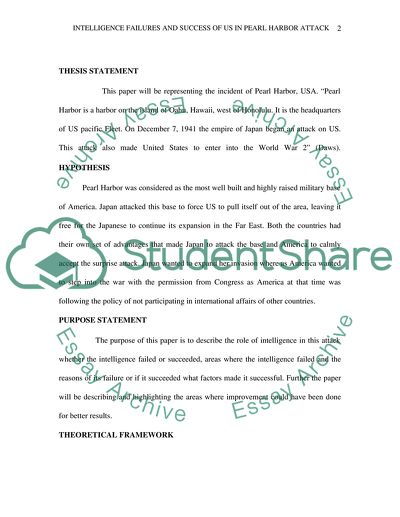Cite this document
(Intelligence Failures and Success of Pearl Harbor Attack Research Paper, n.d.)
Intelligence Failures and Success of Pearl Harbor Attack Research Paper. Retrieved from https://studentshare.org/history/1743437-intelligence-failures-and-successes-of-the-united-states-in-the-pearl-harbor-attack
Intelligence Failures and Success of Pearl Harbor Attack Research Paper. Retrieved from https://studentshare.org/history/1743437-intelligence-failures-and-successes-of-the-united-states-in-the-pearl-harbor-attack
(Intelligence Failures and Success of Pearl Harbor Attack Research Paper)
Intelligence Failures and Success of Pearl Harbor Attack Research Paper. https://studentshare.org/history/1743437-intelligence-failures-and-successes-of-the-united-states-in-the-pearl-harbor-attack.
Intelligence Failures and Success of Pearl Harbor Attack Research Paper. https://studentshare.org/history/1743437-intelligence-failures-and-successes-of-the-united-states-in-the-pearl-harbor-attack.
“Intelligence Failures and Success of Pearl Harbor Attack Research Paper”, n.d. https://studentshare.org/history/1743437-intelligence-failures-and-successes-of-the-united-states-in-the-pearl-harbor-attack.


